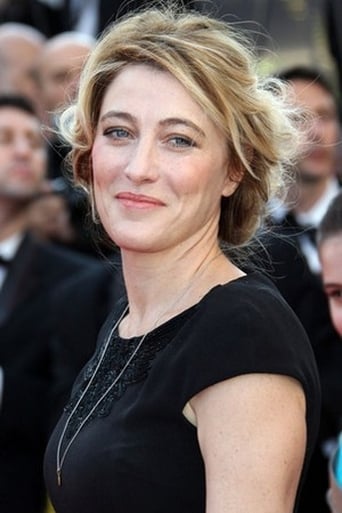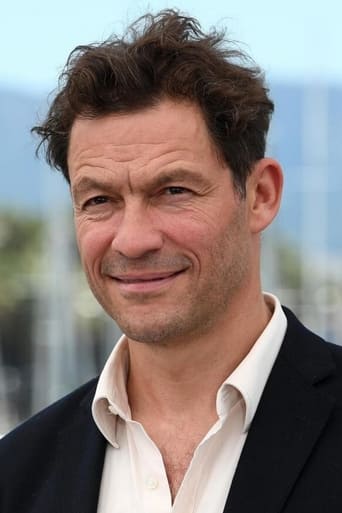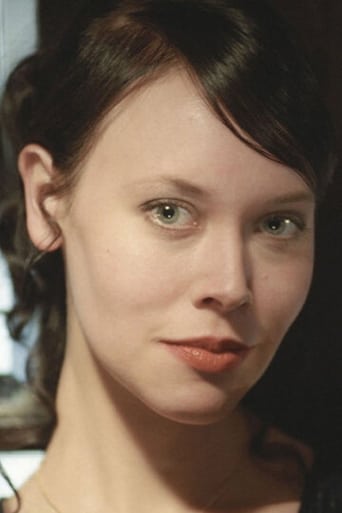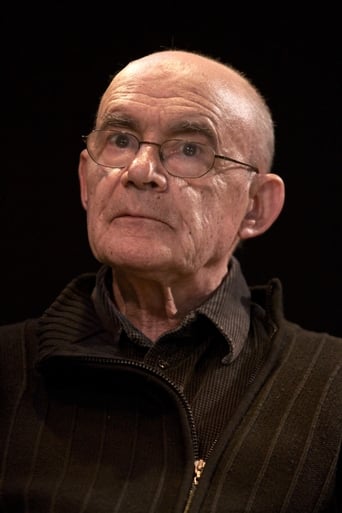Linkshoch
Wonderful Movie
Console
best movie i've ever seen.
Invaderbank
The film creates a perfect balance between action and depth of basic needs, in the midst of an infertile atmosphere.
Christopher Culver
At the turn of the millennium, the producer Nicolas McClintock commissioned short films from a number of prominent auteurs for an anthology project. The requirement was that each short be precisely 10 minutes long, and they all had to deal with the passage of time in some way. The project was called "Ten Minutes Older" and ultimately two films were compiled from the submissions, subtitled "The Trumpet" and "The Cello", respectively."The Cello" contains eight shorts. It starts off strong with Bernardo Bertolucci's "Histoire d'eaux", which I don't spoil here, but I can say that it juxtaposes a tale of an illegal Indian immigrant in Italy with ancient Hindu mythology to memorable effect. It is followed by Mike Figgis' "About Time 2" that follows that director's film TIMECODE in splitting the screen into four video-camera shots that run concurrently. While some of the imagery is thought-provoking, ultimately this feels rather muddled and a failed experiment, the one truly weak film here.For this project that is meant to be a meditation on time, some of the contributors used their shorts to depict much longer spans of time than just the ten minutes they were allotted. That is especially the case with Jiri Menzel's "One Moment". Menzel assembled his short from carefully chosen footage of the great Czech actor Rudolf Husinsky (1920-1994), whose career spanned over half a century. Thus in 10 minutes we see Husinsky go from a fit and dashing young man to a pudgy middle-age guy wistful for the past, and then ultimately a wizened elderly person near death. This meditation is very poignant, but it is also given an element of humour.Volker Schlöndorff similarly wanted to tackle great issues of existence. A scene at a German holiday camp, where the family is initially enjoying some barbecue outside their caravan, turns violent as their daughter begins a drinking binge and the space is invaded by some skinheads. With St. Augustine's meditation on time read in voice-over, and the camera often representing the view of the mosquitos that plague this camping spot, the film ultimately suggests that from the perspective of eternity even human beings may be as insignificant as insects.Claire Denis short "Vers Nancy" has a punning title. Set on a train, it might refer to being bound for the city of Nancy. However, the dialogue consists of philosopher Jean-Luc Nancy speaking to the woman seated across from him (Ana Samardzija) about the quality of being a foreigner or outsider. Ten minutes of dense philosophical dialogue may turn some people off (and those who don't speak French, beware: it is abridged almost to unintelligibility in DVD subtitles), but I enjoyed it. Plus, with this dialogue and Samardzija's clothes, this short film by Denis is surely an homage to Jean-Luc Godard's work of the 1960s, especially VIVRE SA VIE where Anna Karina chats in a cafe with a philosopher.Jean-Luc Godard is in fact present here with "Dans le noir du temps". Godard has taken on quite a dismal outlook in his old age, and he subdivides his short into sections titled "The last minutes of..." that consist of visually striking scenes from his works of the 1960s and 1990s. Sure, Godard and his partner Anne-Marie Mieville might be criticized for simply submitting 10 minutes of footage many cinephiles had already seen before, but the framing makes it worth revisiting these classic moments.Istvan Szabo's "Ten Minutes After" shows a woman setting the table for the celebration of her wedding anniversary, but after her husband comes up drunk and they struggle, she accidentally stabs him and is arrested. The Hungarian director thus uses his allotted time to show just how brutally one's life can be turned upside down in the space of just 10 minutes. The woman's downfall is depicted in a patently unrealistic way, pure Brechtian alienation.Finally, Michael Radford's "Addicted to the Stars" depicts an astronaut (a young Daniel Craig well before he became world famous as James Bond) returning to Earth after a mission far away. Due to the effects of relativity, only 10 minutes have passed for him, but a whole century has gone by on Earth. If you love the distinct visual appearance of British sci-fi like Red Dwarf or Dr. Who -- which, let's fact it, ultimately goes back to tiny production budgets -- you'll like Radford's distinctly British view of the future.Though the shorts here are of variable quality, they all held my attention and were generally a moving experience. The audience for this kind of film is a limited one, namely cinephiles who enjoy the often challenging works of auteur filmmakers, but if that describes you, then I'd recommend checking this out. Furthermore, I find that "The Cello" is overall better than "The Trumpet".
Fimma
I saw this movie twice and going to look once again Bertolucci's and Michael Radford's segments.So, my experience talks: it's not right choice for looking at 11 p.m. after hard work day. For looking non-commercial cinema you must have just a little open mind.It's a real pleasure, that all contributions so different, from simple mixed own old works, as Jean-Luc Godard has done to Bertolucci's talented and deep adaptation a mythological story of water to modern life. You know, that all of them started from one place - 10 minutes limit and theme - about time. After all, you see eight author's ways and points of view.One of them I find too bore ("Vers Nancy"). Two another - unexpected not interesting ("Ten Minutes After", "Dans le noir du temps"). That's worst what I can say about.Even against my opinion that director must not work as DJ, but create something new, Jiri Menzel's elegant, warm and simple contribution hold on. Exactly such effect after cool emotionless sci-fi "Addicted to the Stars". New James Bond looks convincingly in every role of someone, who is completely devoted one idea.
Framescourer
'With complete creative freedom, fifteen directors bring their interpretation of time to the screen', says the British National Film Theatre screening note. Alas, most of the film(s) take this carte blanche at it's worst implication and indulge themselves at the exclusion of the audience.Good things to come out of the showing though... Mike Figgis' splitting a linear story into a 4-way split screen of different perspectives. What's the real narration? Are the dull gaps in each linear tale as important as the action in another? This also finds expression in Schlondorff's The Enlightenment and Denis' Vers Nancy where coherent but quickly unengaging voiceovers give way to the visual dialectic. Which is the essay on time - one, the other, or a linear combination of the two? The most accessible is Micheal Radford's largely straightforward tale of time travel.A bit of a grouch - there's an element of 'oh, it's just a short so we won't bother with detail because it's the concept that matters'. Well (for example) Szabo and Bertolucci's efforts seem a little plastic as a result of off the peg costuming. Plus there's an element of the director's wanting to tackle a different issue, that of immigration - although the context of the intruder is a companion of the linear nature of time. And the idea of unifying the shorts beyond the title with meditative 'cello music is a bad one, blunting the idiosyncratic nature of each.The film ends with a nod to three other directors. I was pleased to see the name of Chris Marker there: his 27 min narrated stills feature La Jetee is a much more approachable and thorough investigation into the nature of time (and memory). I don't recommend this as a film for anyone beyond film students and perhaps philosophers.
Zadam
Would be excellent for background visuals during a house part-e. It's like a 90 minute screen saver for the artistic types. Plug-in! While I am sure there are varying plots throughout, or not, I found myself enjoying having it on as a late night fadeout. I found some part grabbing my attention and other parts cracking a grin. I would suggest taping it for the house part-e visuals or your own late night fadeout. It's definitely easy on the brain.





